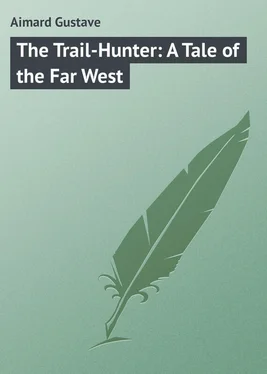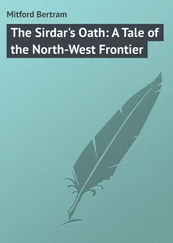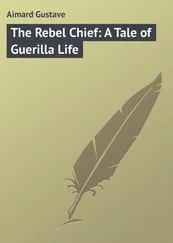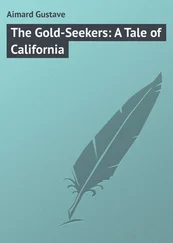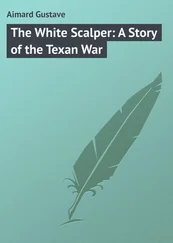Gustave Aimard - The Trail-Hunter - A Tale of the Far West
Здесь есть возможность читать онлайн «Gustave Aimard - The Trail-Hunter - A Tale of the Far West» — ознакомительный отрывок электронной книги совершенно бесплатно, а после прочтения отрывка купить полную версию. В некоторых случаях можно слушать аудио, скачать через торрент в формате fb2 и присутствует краткое содержание. Жанр: foreign_prose, на английском языке. Описание произведения, (предисловие) а так же отзывы посетителей доступны на портале библиотеки ЛибКат.
- Название:The Trail-Hunter: A Tale of the Far West
- Автор:
- Жанр:
- Год:неизвестен
- ISBN:нет данных
- Рейтинг книги:3 / 5. Голосов: 1
-
Избранное:Добавить в избранное
- Отзывы:
-
Ваша оценка:
- 60
- 1
- 2
- 3
- 4
- 5
The Trail-Hunter: A Tale of the Far West: краткое содержание, описание и аннотация
Предлагаем к чтению аннотацию, описание, краткое содержание или предисловие (зависит от того, что написал сам автор книги «The Trail-Hunter: A Tale of the Far West»). Если вы не нашли необходимую информацию о книге — напишите в комментариях, мы постараемся отыскать её.
The Trail-Hunter: A Tale of the Far West — читать онлайн ознакомительный отрывок
Ниже представлен текст книги, разбитый по страницам. Система сохранения места последней прочитанной страницы, позволяет с удобством читать онлайн бесплатно книгу «The Trail-Hunter: A Tale of the Far West», без необходимости каждый раз заново искать на чём Вы остановились. Поставьте закладку, и сможете в любой момент перейти на страницу, на которой закончили чтение.
Интервал:
Закладка:
"Yes, my father is good," the chief replied in his guttural voice. "He loves the Indians: unhappily all the palefaces do not resemble him."
"What does my brother mean? Has he cause to complain of anyone?"
The Indian smiled sadly.
"Where is there justice for the redskins?" he said. "The Indians are animals: the Great Spirit has not given them a soul, as He has done for the palefaces, and it is not a crime to kill them."
"Come, chief, pray do not speak longer in riddles, but explain why you have quitted your tribe. It is far from Rio San Pedro to this place."
"Mookapec is alone: his tribe no longer exists."
"How?"
"The palefaces came in the night, like jaguars without courage. They burned the village, and massacred all the inhabitants, even to the women and little children."
"Oh, that is frightful!" the hacendero murmured, in horror.
"Ah!" the chief continued with an accent full of terrible irony, "The scalps of the redskins are sold dearly."
"And do you know the men who committed this atrocious crime?"
"Mookapec knows them, and will avenge himself."
"Tell me their chief, if you know his name."
"I know it. The palefaces call him Red Cedar, the Indians the Maneater."
"Oh! As for him, chief, you are avenged, for he is dead."
"My father is mistaken."
"How so? Why, I killed him myself."
The Indian shook his head.
"Red Cedar has a hard life," he said: "the blade of the knife my father used was too short. Red Cedar is wounded, but in a few days he will be about again, ready to kill and scalp the Indians."
This news startled the hacendero: the enemy he fancied he had got rid of still lived, and he would have to begin a fresh struggle.
"My father must take care," the chief continued. "Red Cedar has sworn to be avenged."
"Oh! I will not leave him the time. This man is a demon, of whom the earth must be purged at all hazards, before his strength has returned, and he begins his assassinations again."
"I will aid my father in his vengeance."
"Thanks, chief. I do not refuse your offer: perhaps I shall soon need the help of all my friends. And now, what do you purpose doing?"
"Since the palefaces reject him, Eagle-wing will retire to the desert. He has friends among the Comanches. They are redskins, and will welcome him gladly."
"I will not strive to combat your determination, chief, for it is just; and if, at a later date, you take terrible reprisals on the white men, they will have no cause of complaint, for they have brought it on themselves. When does my brother start?"
"At sunset."
"Rest here today: tomorrow will be soon enough to set out."
"Mookapec must depart this day."
"Act as you think proper. Have you a horse?"
"No; but at the first manada I come to I will lasso one."
"I do not wish you to set out thus, but will give you a horse."
"Thanks; my father is good. The Indian chief will remember – "
"Come, you shall choose for yourself."
"I have still a few words to say to my father."
"Speak, chief; I am listening to you."
"Koutonepi, the pale hunter, begged me to give my father an important warning."
"What is it?"
"A great danger threatens my father. Koutonepi wishes to see him as soon as possible, in order himself to tell him its nature."
"Good! My brother will tell the hunter that I shall be tomorrow at the 'clearing of the shattered oak,' and await him there till night."
"I will faithfully repeat my father's words to the hunter."
The two men then quitted the garden, and hurriedly proceeded toward the hacienda. Don Miguel let the chief choose his own horse, and while the sachem was harnessing his steed in the Indian fashion, he withdrew to his bedroom, and sent for his son to join him. The young man had perfectly recovered from his wound. His father told him that he was obliged to absent himself for some days: he intrusted to him the management of the hacienda, while recommending him on no consideration to leave the farm, and to watch attentively over his sister. The young man promised him all he wished, happy at enjoying perfect liberty for a few days.
After embracing his son and daughter for the last time Don Miguel proceeded to the patio , where in the meanwhile, the chief had been amusing himself by making the magnificent horse he had chosen curvet. Don Miguel admired for several moments the Indian's skill and grace, for he managed a horse as well as the first Mexican jinete; then mounted, and the two men proceeded together toward the Paso del Norte, which they must cross in order to enter the desert, and reach the clearing of the shattered oak.
The journey passed in silence, for the two men were deeply reflecting. At the moment they entered Paso the sun was setting on the horizon in a bed of red mist, which foreboded a storm for the night. At the entrance of the village they separated; and on the morrow, as we have seen in our first chapter, Don Miguel set out at daybreak, and galloped to the clearing.
We will now end this lengthy parenthesis, which was, however, indispensable for the due comprehension of the facts that are about to follow, and take up our story again at the point where we left it.
CHAPTER XI
CONVERSATION
Valentine Guillois, whom we have already introduced to the reader in previous works 2 2 "Tiger-Slayer," etc. Same publishers.
, had inhabited, or, to speak more correctly, traversed the vast solitudes of Mexico and Texas during the past five or six years. We saw him just now accompanied by the Araucano chief. These two men were the boldest hunters on the frontier. At times, when they had collected an ample harvest of furs, they went to sell them in the villages, renewed their stock of powder and ball, purchased a few indispensable articles, and then returned to the desert.
Now and then they engaged themselves for a week, or even a fortnight, with the proprietors of the haciendas, to free them from the wild beasts that desolated their herds; but so soon as the ferocious animals were destroyed, and the reward obtained, no matter the brilliancy of the offers made them by the landowners, the two men threw their rifles on their shoulders and went off.
No one knew who they were, or whence they came. Valentine and his friend maintained the most complete silence as to the events of their life which had preceded their appearance in these parts. Only one thing had betrayed the nationality of Valentine, whom his comrade called Koutonepi, a word belonging to the language of the Aucas, and signifying "The Valiant." On his chest the hunter wore the cross of the Legion of Honor. The deeds of every description performed by these hunters were incalculable, and their stories were the delight of the frontier dwellers during the winter night. The number of tigers they had killed was no longer counted.
Chance had one day made them acquainted with Don Miguel Zarate under strange circumstances, and since then an uninterrupted friendship had been maintained between them. Don Miguel, during a tempestuous night, namely, had only owed his life to the accuracy of Valentine's aim, who sent a bullet through the head of the Mexican's horse at the moment when, mad with terror, and no longer obeying the bridle, it was on the point of leaping into an abyss with its master. Don Miguel had sworn eternal gratitude to his saviour.
Valentine and Curumilla had made themselves the tutors of the hacendero's children, who, for their part, felt a deep friendship for the hunters. Don Pablo had frequently made long hunting parties in the desert with them; and it was to them he owed the certainty of his aim, his skill in handling weapons, and his knack in taming horses.
No secrets existed between Don Miguel and the hunters: they read in his mind as in an ever open book. They were the disinterested confidants of his plans; for these rude wood rangers esteemed him, and only required for themselves one thing – the liberty of the desert. Still, despite the sympathy and friendship which so closely connected these different persons, and the confidence which formed the basis of that friendship, Don Miguel and his children had never been able to obtain from the hunters information as to the events that had passed prior to their arrival in this country.
Читать дальшеИнтервал:
Закладка:
Похожие книги на «The Trail-Hunter: A Tale of the Far West»
Представляем Вашему вниманию похожие книги на «The Trail-Hunter: A Tale of the Far West» списком для выбора. Мы отобрали схожую по названию и смыслу литературу в надежде предоставить читателям больше вариантов отыскать новые, интересные, ещё непрочитанные произведения.
Обсуждение, отзывы о книге «The Trail-Hunter: A Tale of the Far West» и просто собственные мнения читателей. Оставьте ваши комментарии, напишите, что Вы думаете о произведении, его смысле или главных героях. Укажите что конкретно понравилось, а что нет, и почему Вы так считаете.
